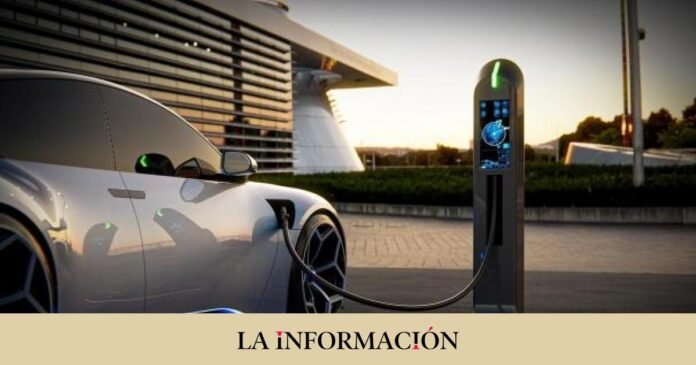“Europe is splitting in two and Spain is in the tail car.” These statements by José López Tafall, general director of Anfac, refer to the delay in sales of electric cars in Spain compared to their European counterparts. The automotive industry is facing a key decade for its transformation towards the ‘net zero’ road drawn from Brussels, but this continues to be a utopia in our country. In this line, the sector seeks the support of the Government to accelerate electrification through a plan based on three pillars: charging infrastructure, the penetration of electrified models and taxation.
These are the lines of action in which the automotive industry demands more attention from the Executive to promote the purchase of a car, whose sales do not even represent 10% of the national park, when in other countries such as Portugal (26.8%) or France (25%) are already a significant piece of the pie. This was valued last Tuesday at the mobility forum organized by Anfac, where the main companies in the sector took advantage to analyze the roadmap to follow in order to comply with the ‘green’ plan of the European Union.
The success of the electric vehicle in Portugal is due to the support to companies in the renewal of the fleet.
At this juncture, the industry agrees that Spain has a good model to follow in its neighboring countries to encourage citizens to make the leap to electrification. According to details from the sector, our main disadvantage compared to them is taxation. “We must improve taxation, the success of the electric vehicle in Portugal is due to the support for companies in the renewal of the fleet,” explained López Tafall. The data corroborate it: in Spain, the electrified car has a share of penetration in companies of 12%, in Portugal of 27%.
The sector urges streamlining procedures
Likewise, the automotive industry also demands that Moncloa expedite the aid from the MOVES III Plan, which instead of encouraging, “makes the citizen desperate” as criticized by Anfac. The association insists on reducing the time for these grants that take up to a year to reach the applicant. The net aid, which ranges between 3,710 and 5,670 euros (with scrapping) or between 2,385 and 3,645 euros in the event of not delivering an old car for scrapping, are higher in amount than those in Portugal, however the Portuguese system is much simpler .
The Costa government grants 3,000 euros, without any problem with paperwork or the need to scrap any vehicle, to any individual who wishes to purchase a new electric car up to 62,500 euros. The aid is even doubled for company cars, which have a bonus of up to 6,000 euros, thus beginning the renewal of the park for those who have the best chance of deducting the investment, which facilitates their economic return.
Neither is the growth of electrification in France a coincidence. The French Executive made available to its population one of the most generous programs in its incentives for the purchase of electric models. With a budget of 8,000 million, the aid can amount to 10,000 euros discount on the final price of the vehicle. In addition, we offer subsidies of up to 1,000 euros if the buyer lives or works in one of the low emission zones.
Recharging infrastructures, at the tail of Europe
The bureaucratic labyrinth of the aid system in Spain is accompanied by a weak network of charging infrastructures. Currently, more than 16,000 public points are operating. This translates into a ratio of 1.6 per 100 kilometres, which in other countries such as Portugal rises to 24.9 charging points per 100 kilometer radius, reflected in an official map provided by the Portuguese government, which in Spain still it is nonexistent.
The Spanish private sector finds itself with many obstacles in the development of infrastructures. According to the Institute for Energy Diversification and Saving (IDAE), more than 42,000 applications are waiting to be processed. In order to streamline the process, building permits have been replaced by responsible declarations, but many specific permits have not been resolved.

